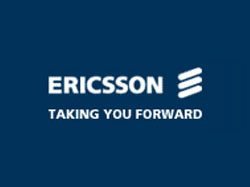 लोडिंग...
लोडिंग...
 लोडिंग...
लोडिंग...

Ericsson and the Republic of Korea have initiated a collaboration aiming to use mobile broadband and other communication technologies, such as machine to machine (m2m), to create a green eco-system
Korea's president, Lee Myung-bak and Ericsson's newly appointed CEO, Hans Vestberg met in Stockholm, Sweden, to discuss how the smart use of telecommunications and IT can help Korea and the rest of the world to reduce CO2 emissions, as well as the role of the government and Ericsson in achieving this.
Korea, one of the world's most advanced ICT nation and Ericsson, leader in telecommunications, have identified mobile broadband and IT technologies as key enablers to create a green eco-system that will result in more sustainable society and therefore have decided to join in their efforts.
Korea will build an eco-system targeting a more sustainable future. As part of this eco-system Ericsson, together with leading Korean companies, will establish a community for the development of sustainable climate solutions based on 4G technologies and, given mutual success, will further expand its presence in the market.
Lee Myung-Bak, President of Korea, said: "Ericsson could play a vital role for Korea's evolution in the ICT market and for Korean export companies. We are certain that by developments in the ICT area we will take needed steps to a more sustainable future. We expect to see more of Ericsson in the Korean business landscape".
Hans Vestberg, Ericsson's CFO and incoming CEO highlighted that society faces a huge challenge to drastically reduce CO2 emissions by 2050, while the world economy as much as triples. "Telecommunications and IT technology will play a vital role in transforming cities and countries through smarter broadband solutions. As one of the world's most advanced nations in the use of ICT, Korea has the opportunity to create a green eco-system and become a great example for the rest of the world"
Ericsson is taking an active leadership in highlighting the role of telecommunications and IT technologies in fighting the climate change to governments, policy makers and non-governmental organizations around the world.
The company believes that offsetting of CO2 emissions will require new ways of conducting business and new ways of living, and will also require large scale investments in Information and Communication technology (ICT) as this sector could offset societal CO2 emissions by more than 15 percent by 2020.
In order to achieve this, Carl-Henric Svanberg, Ericsson's current CEO has participated in different discussions such as UN's General Assembly and the World Business Summit on Climate Change.